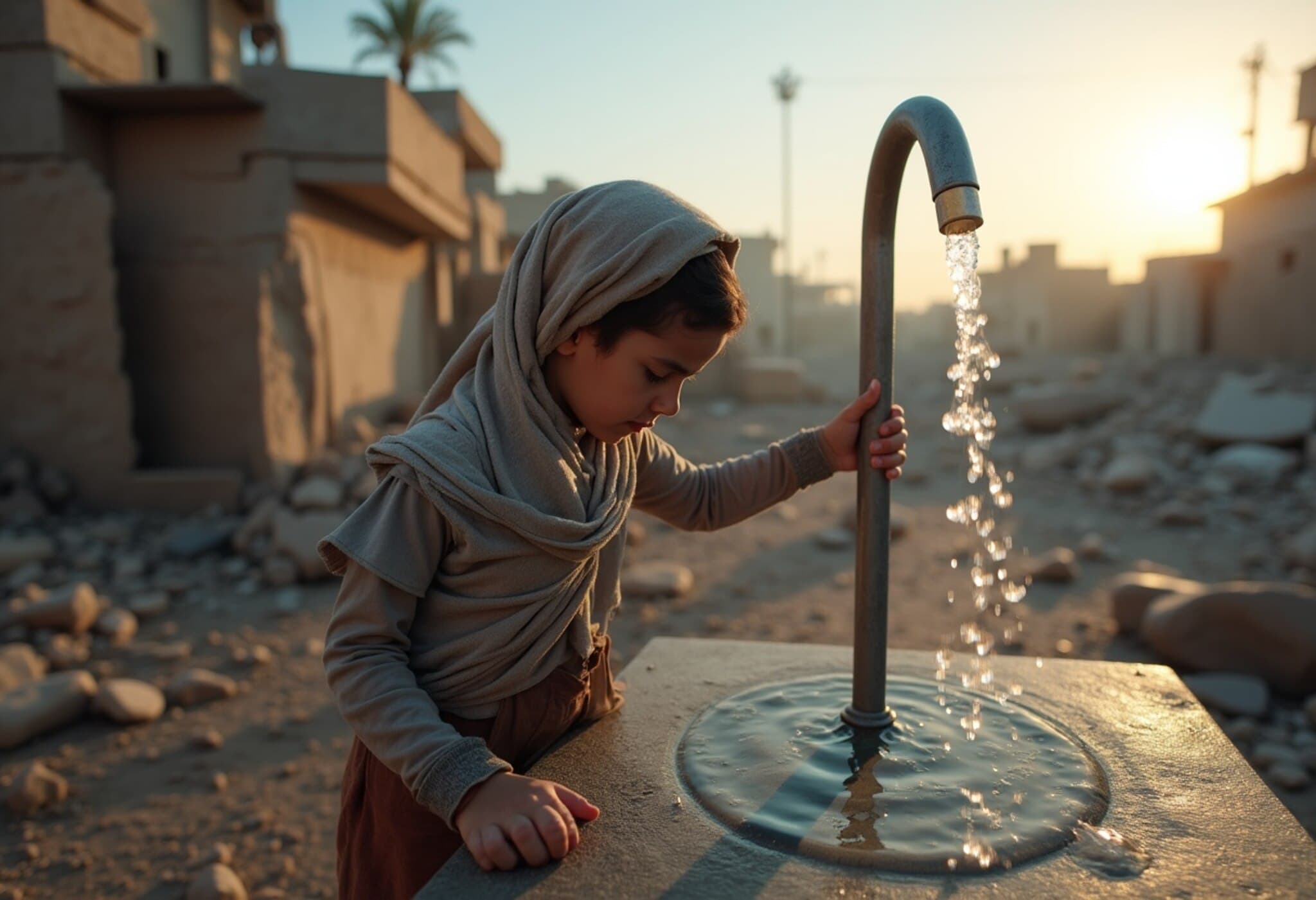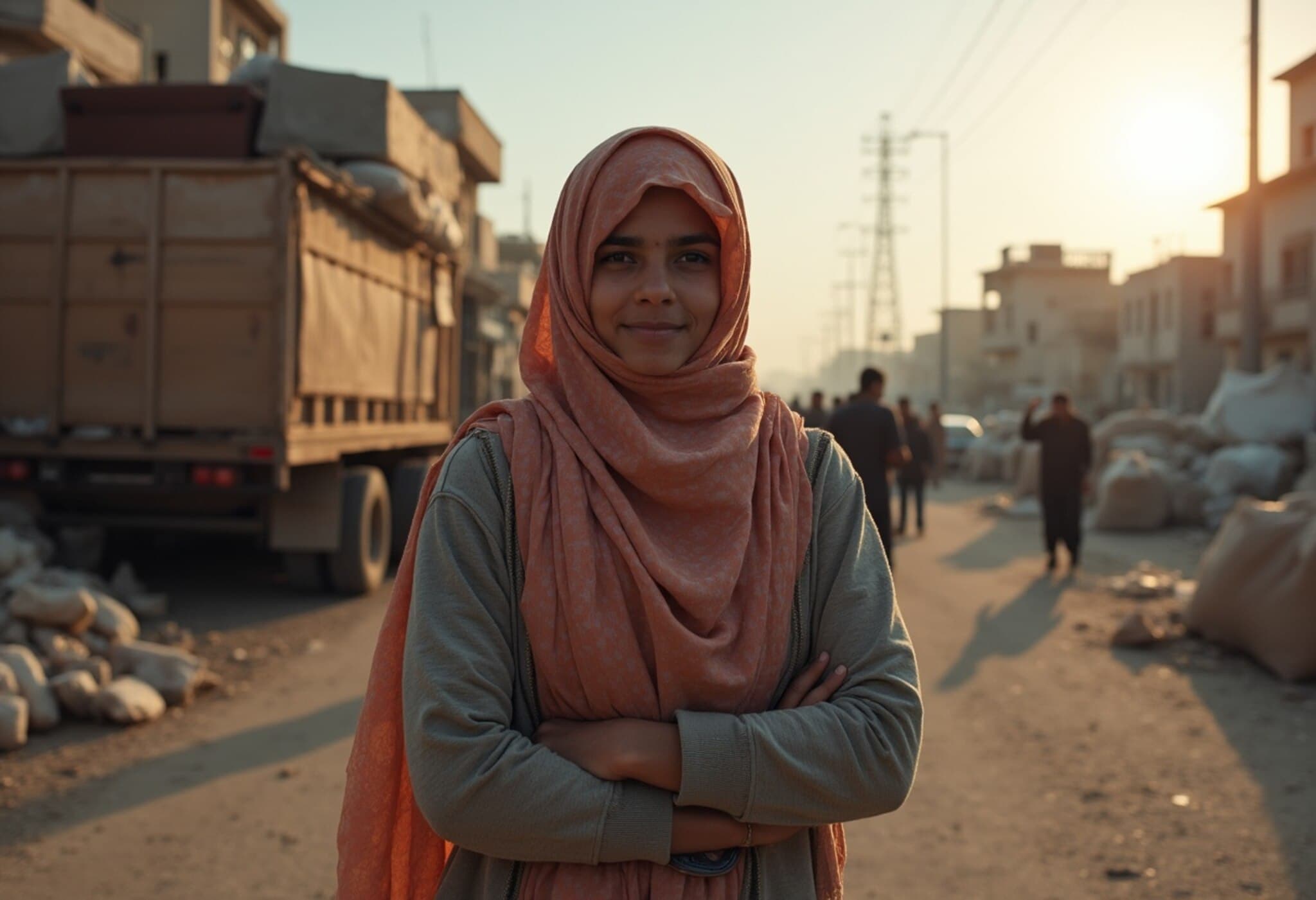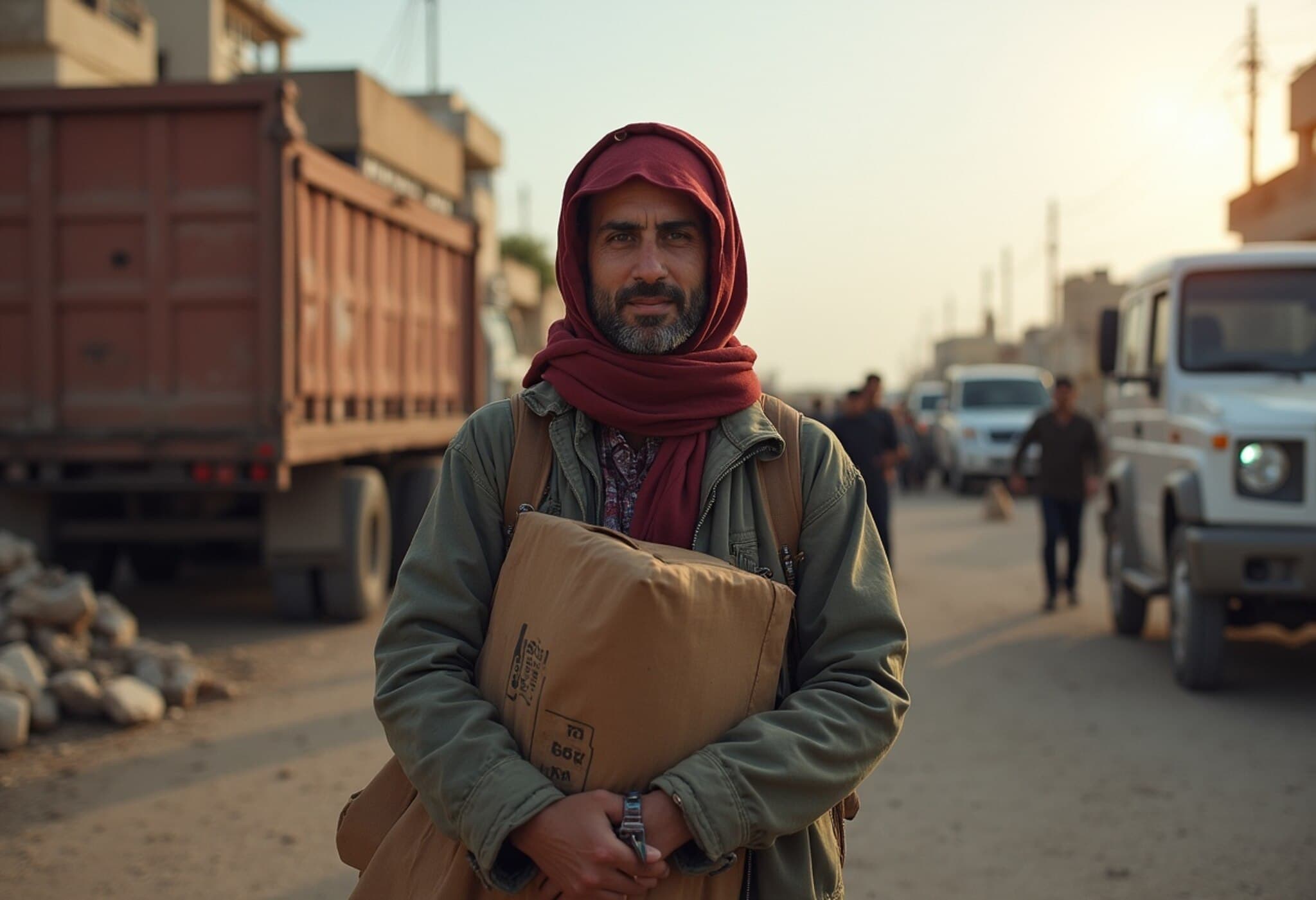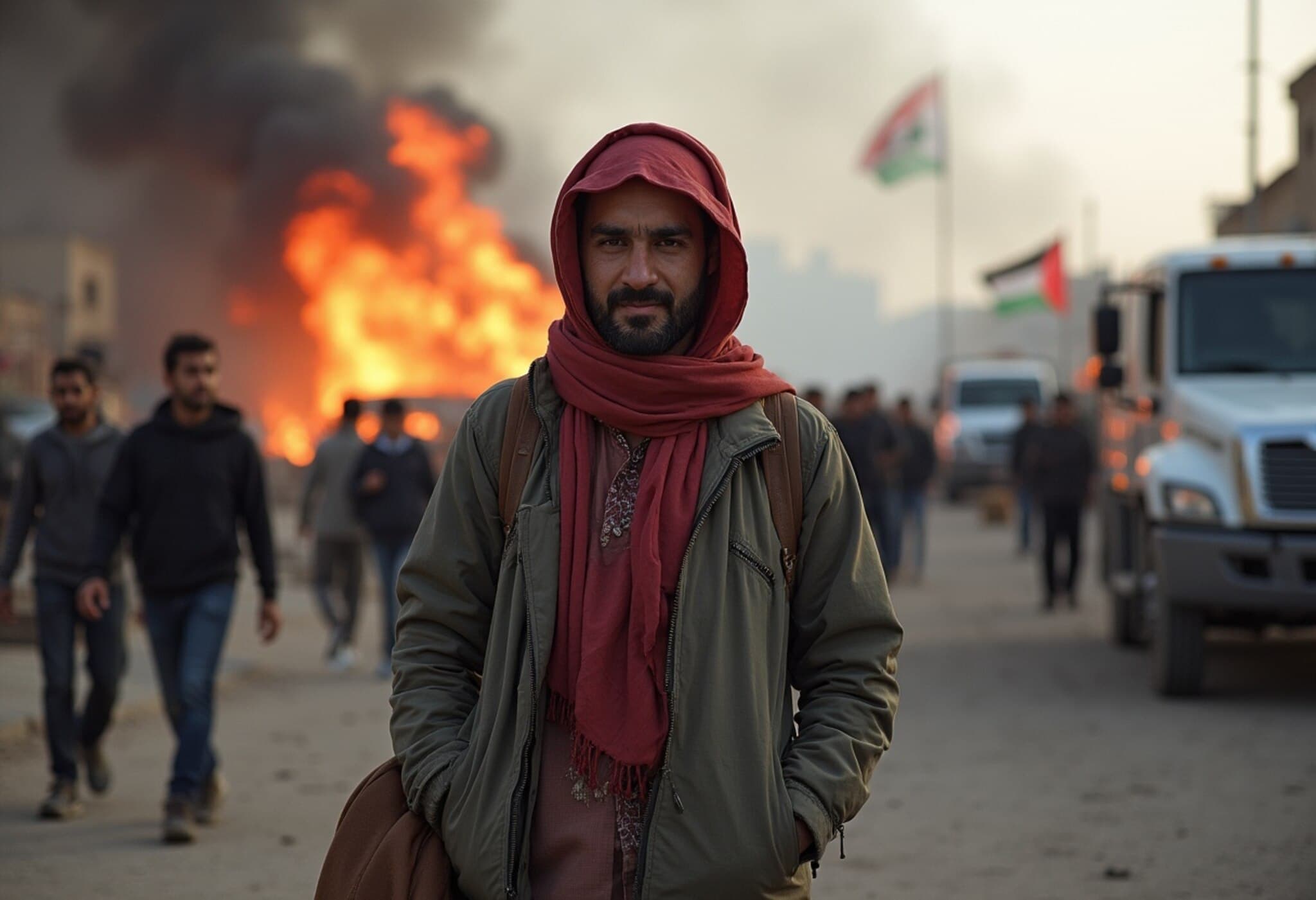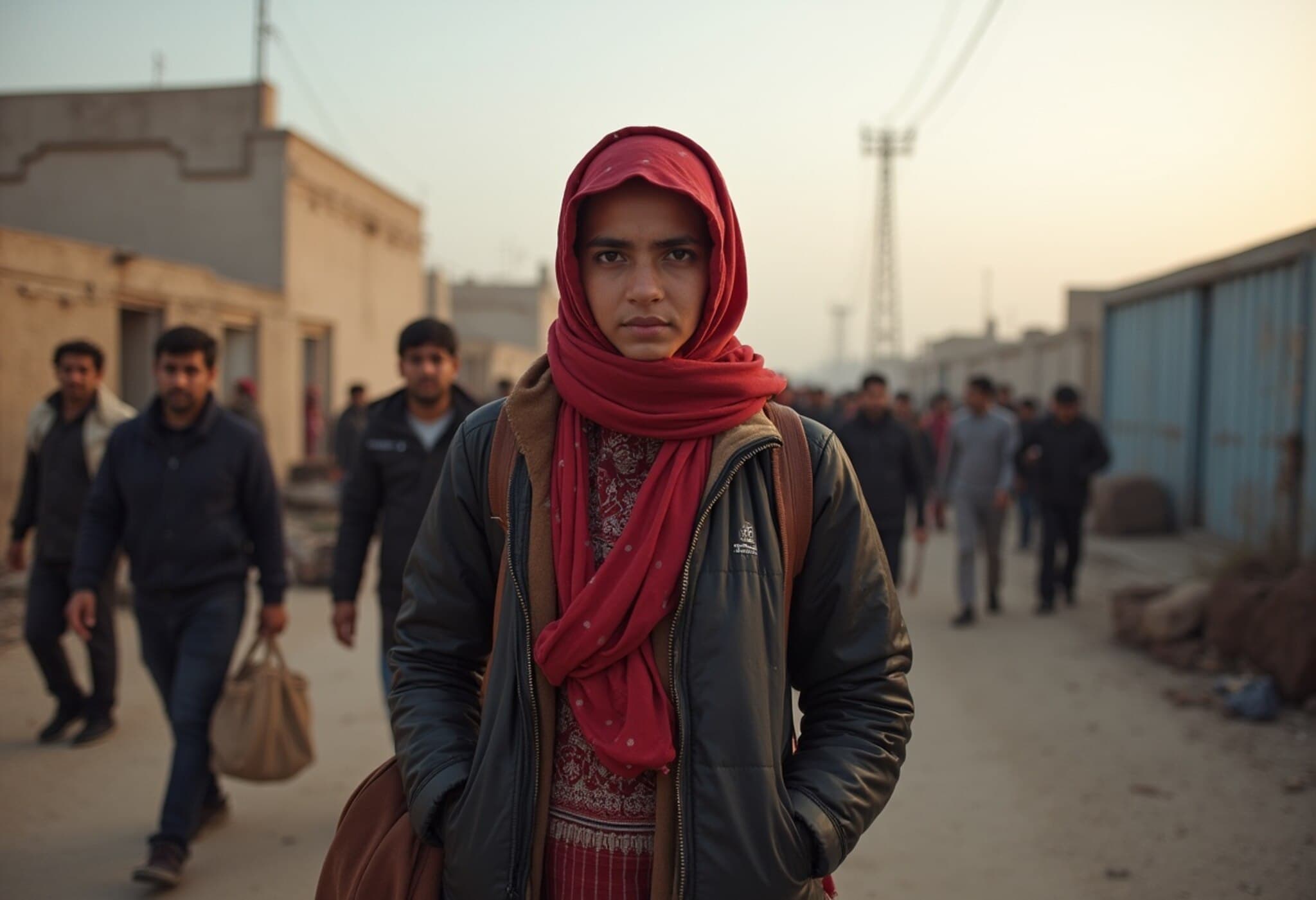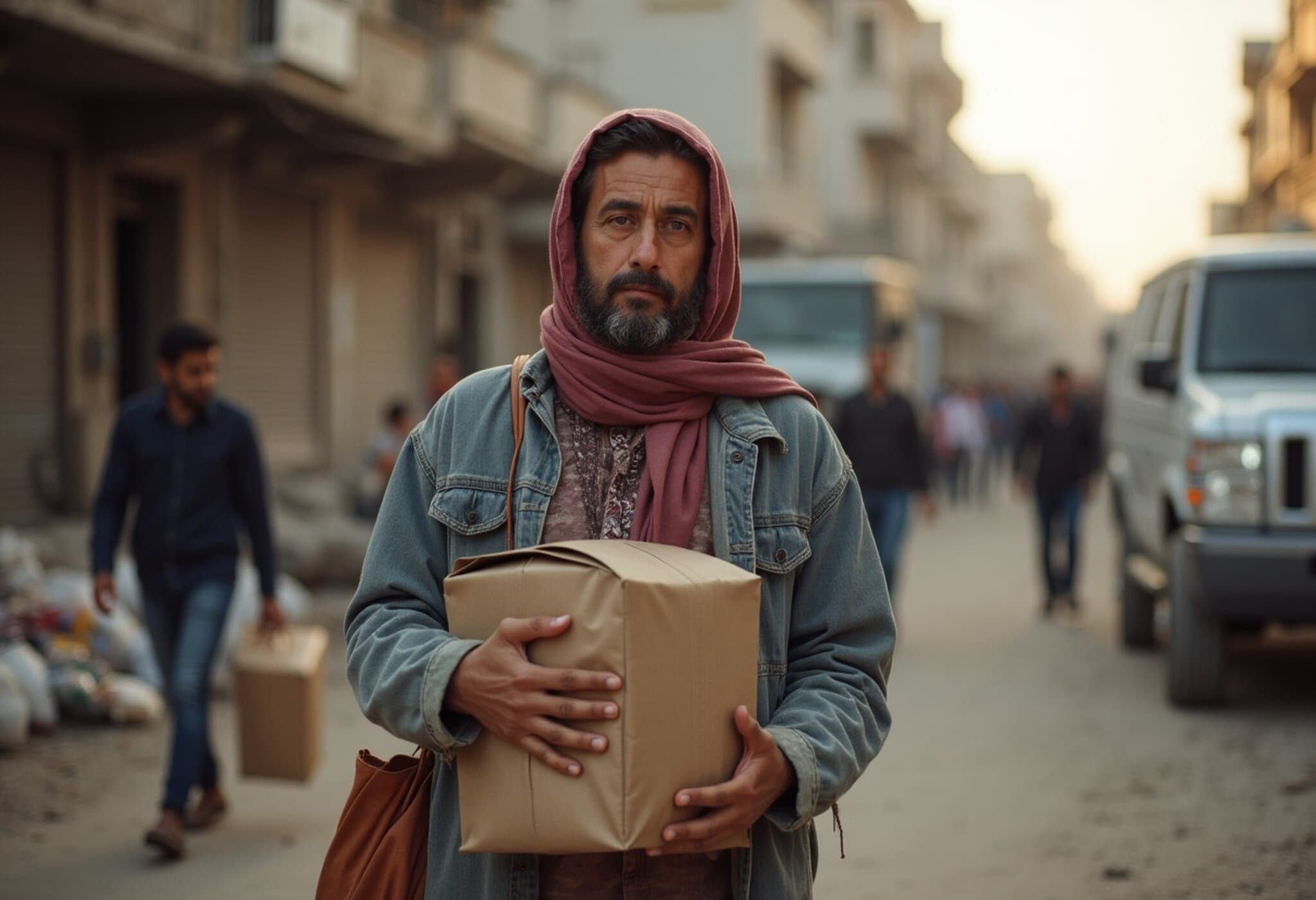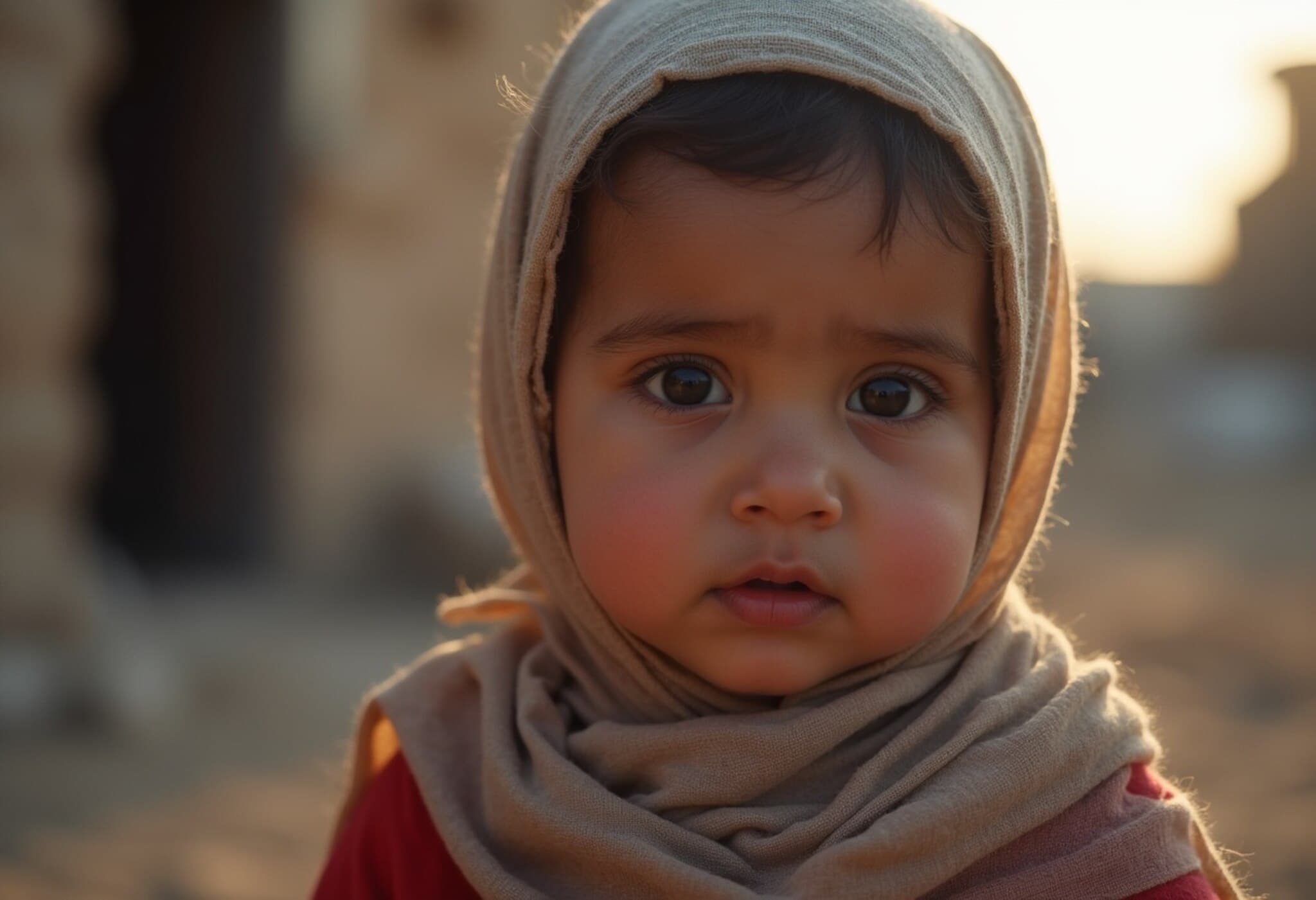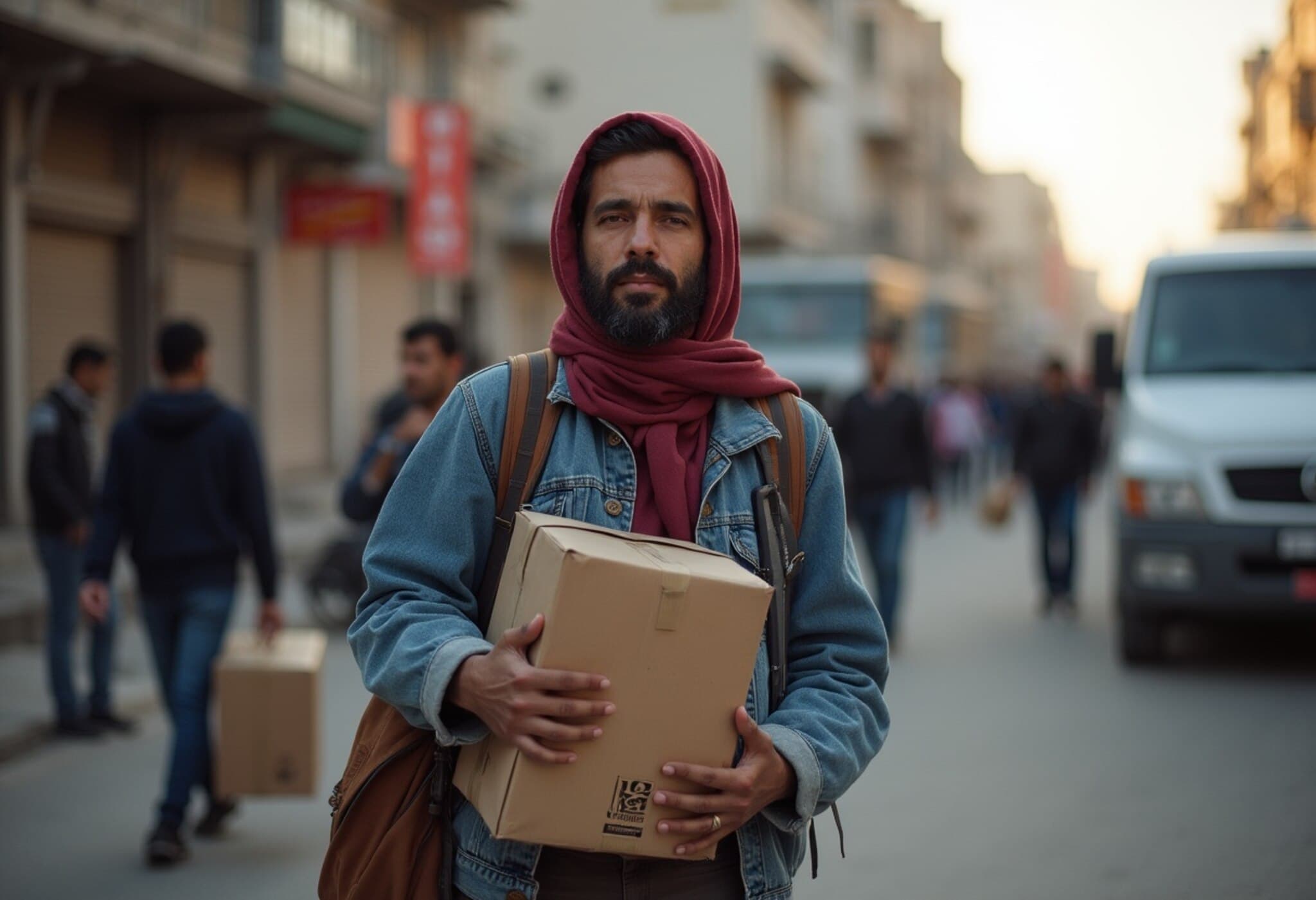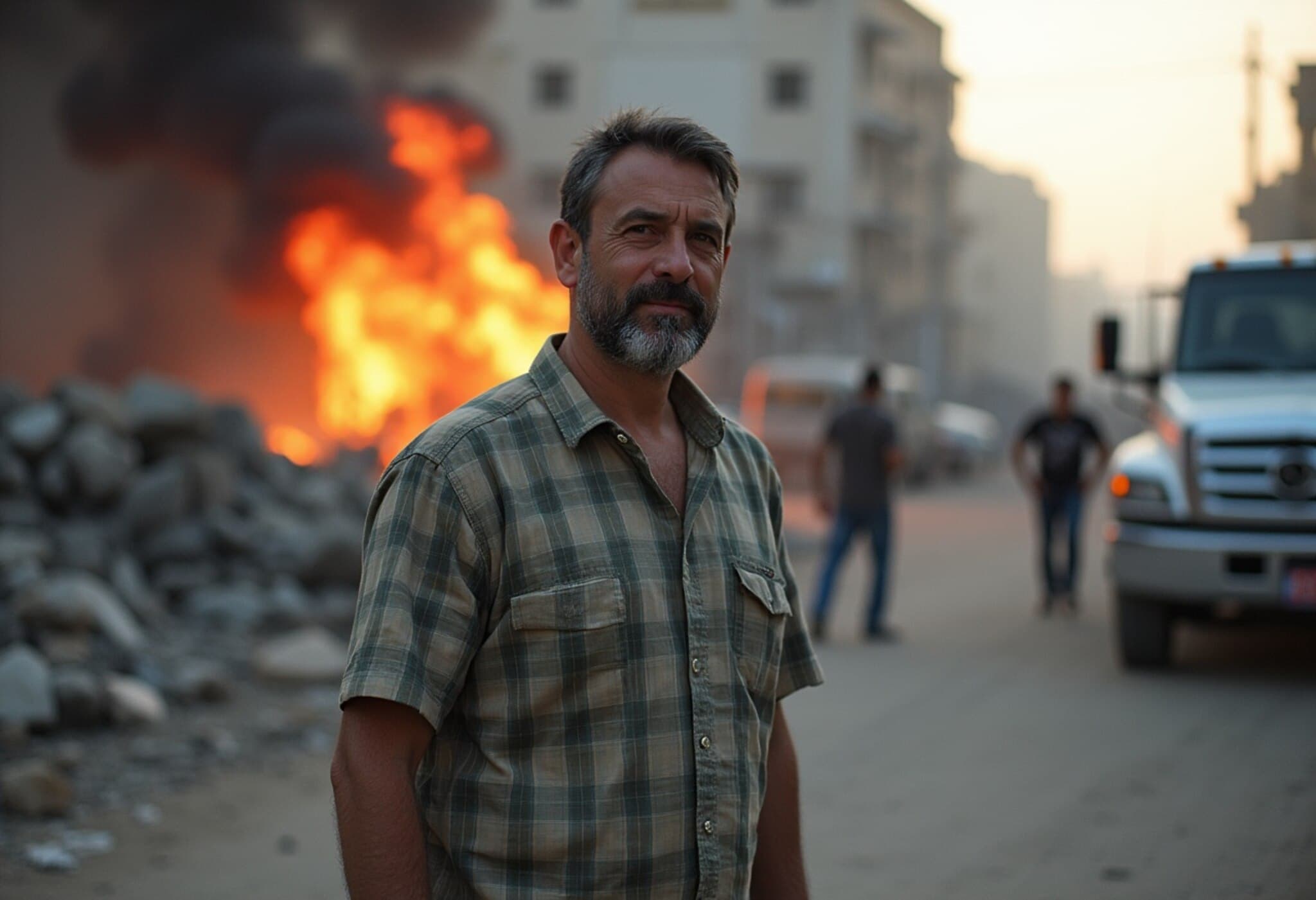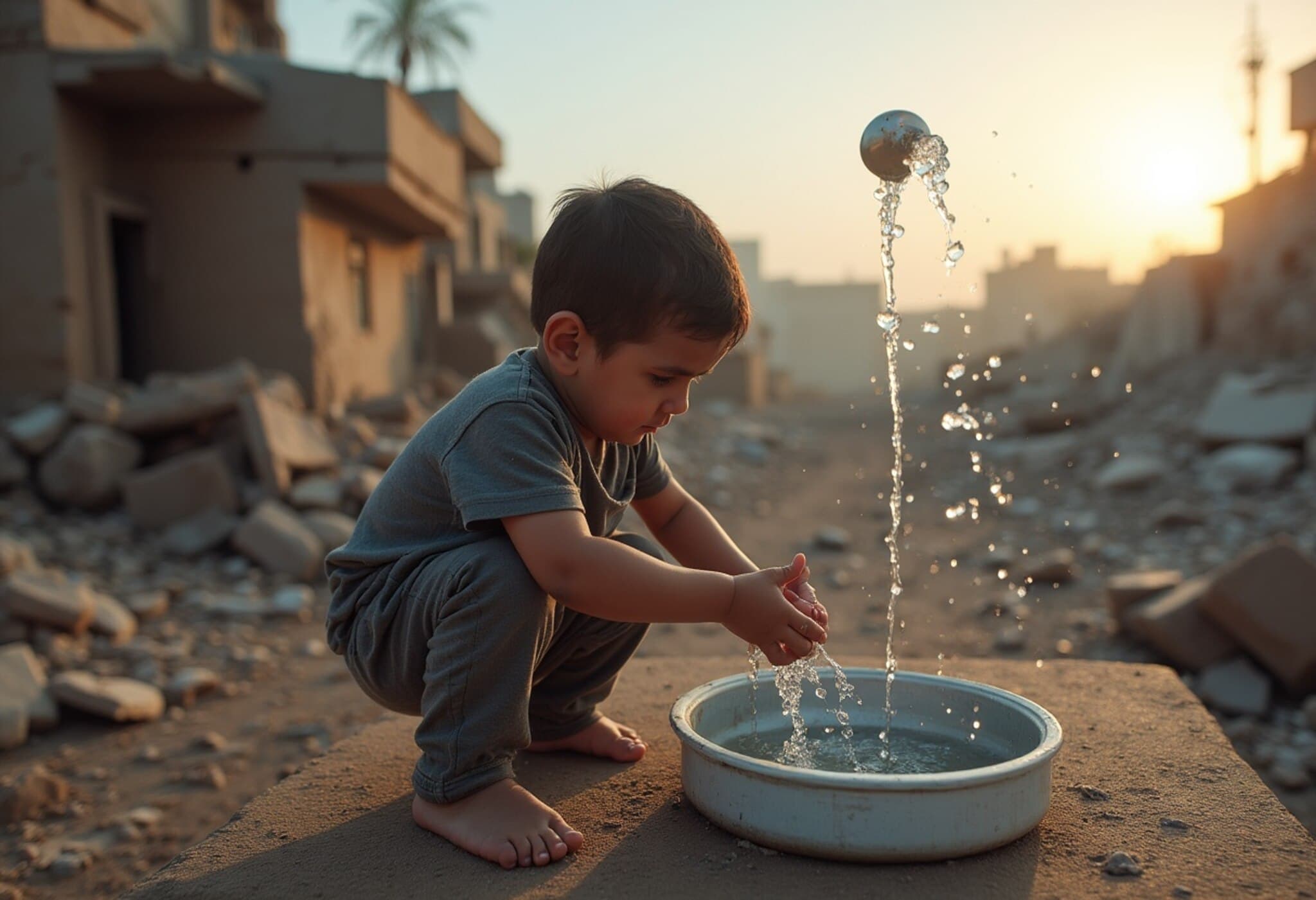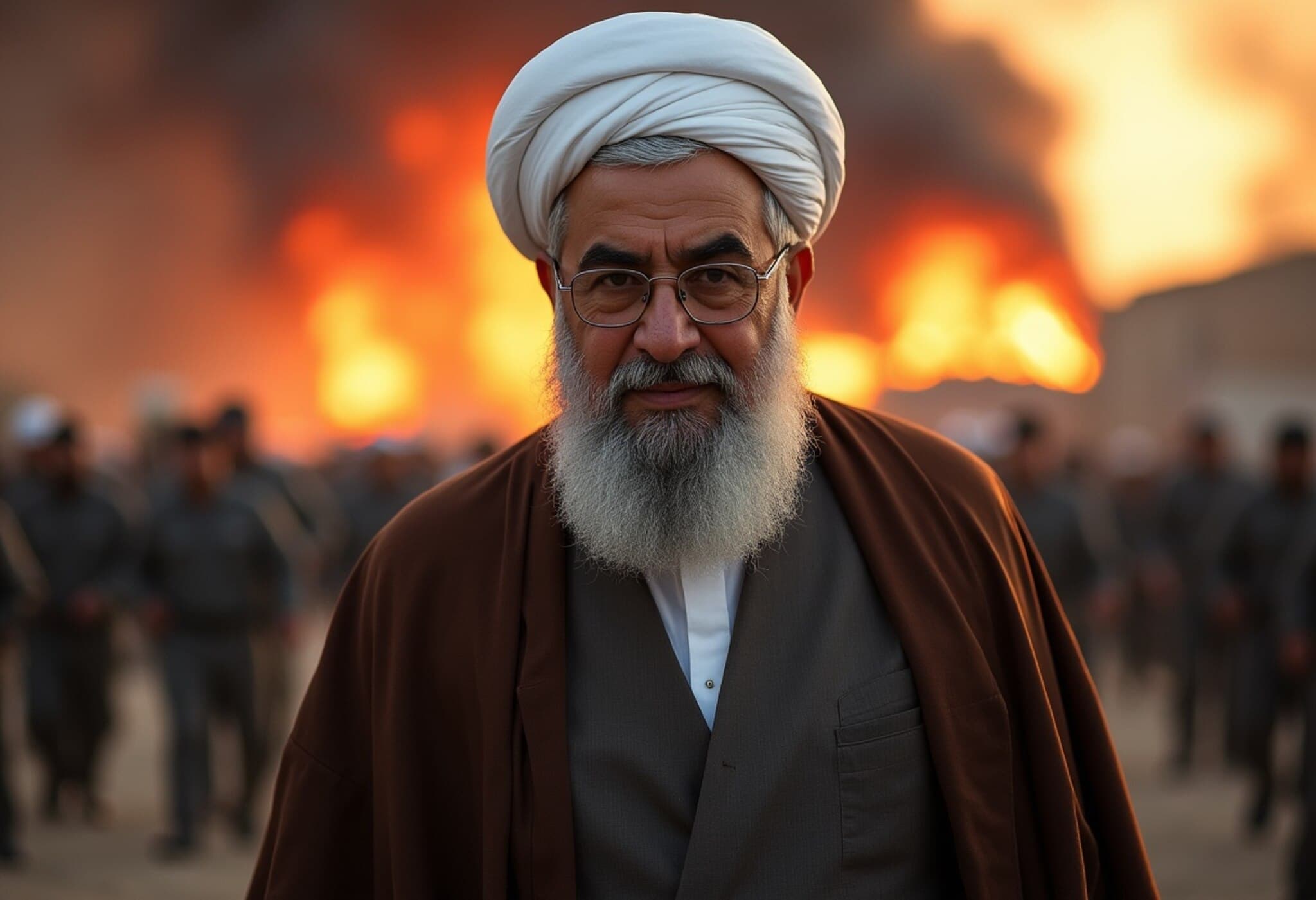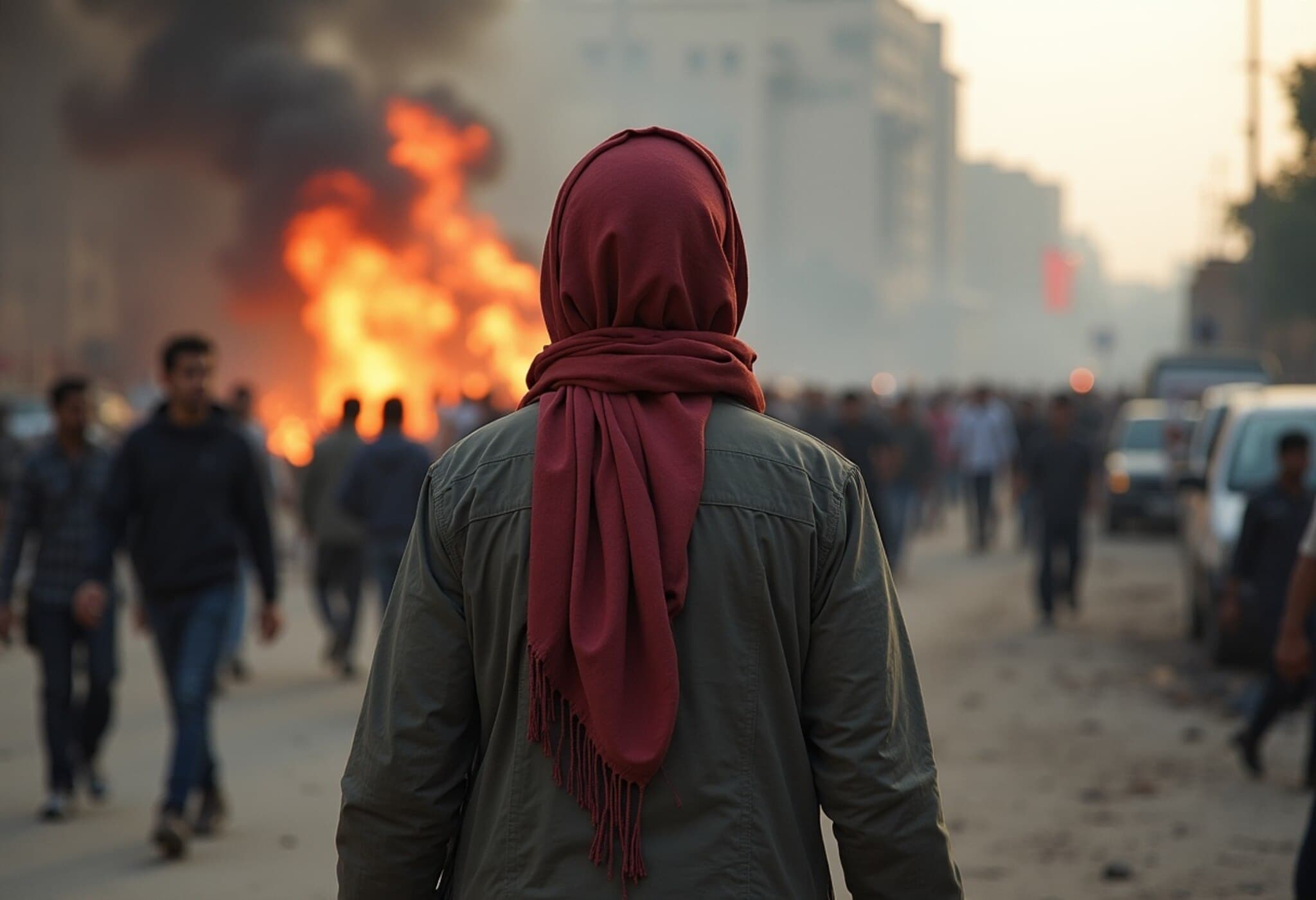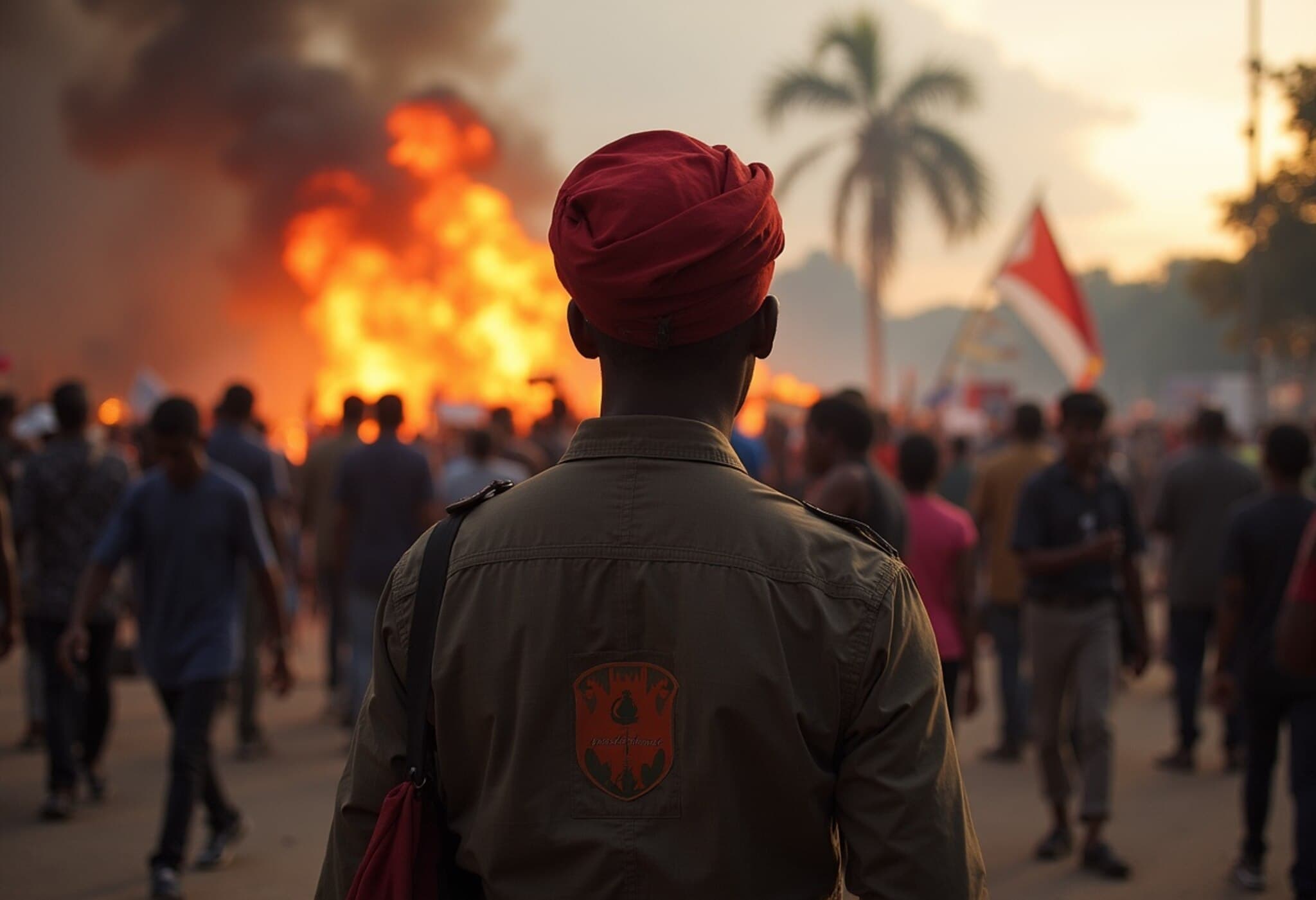Gaza Faces a Dire Water Shortage Amid Ongoing Conflict
The humanitarian situation in Gaza has reached a critical point, with millions grappling for access to clean water — a basic human necessity that is rapidly slipping out of reach. Fuel shortages, destroyed infrastructure, and restrictive blockades have converged to push the enclave’s water system to the brink of collapse.
Blockades and Bombardments Worsen Water Accessibility
Since March, ongoing hostilities and a tightly enforced blockade have isolated Gaza, severely disrupting water delivery systems. Roads, power lines, and supply routes lie in ruins, crippling maintenance and repair efforts. The blockade’s fuel restrictions have forced water pumps and desalination plants — which together provide essential drinking water — to halt operations. According to UNICEF, 60% of Gaza’s water facilities are inoperative, with the remainder expected to fail imminently due to fuel scarcity.
The Al Satar reservoir, a vital water source, has been rendered inaccessible amid displacement orders, exacerbating the already dire water shortage. Emergency water truck deliveries are filling some gaps, but they remain insufficient to meet the urgent needs of the population.
Health Crisis on the Horizon
The resulting shortage of safe drinking water is fueling a surge in waterborne illnesses such as hepatitis A and E, diarrhea, and meningitis, particularly among vulnerable children in densely packed shelters. Hospitals, stretched beyond capacity, are forced to suspend critical treatments — Al Shifa hospital has halted dialysis for over 350 kidney patients, placing lives at severe risk.
Medical experts warn that stagnant and untreated sewage systems pose an imminent threat of widespread outbreaks of cholera and typhoid, conditions that could trigger a full-blown health catastrophe if unaddressed.
Struggles of Daily Life Under Harsh Conditions
Compounding the crisis, nearly 714,000 displaced individuals are now sheltering outdoors under harsh summer heat exceeding 30°C. With less than 10 liters of water per person daily — significantly below international humanitarian standards — families are rationing every drop. Improvised sanitation facilities overflow as raw sewage contaminates living spaces, attracting disease-carrying insects and worsening hygiene conditions.
International Law and Humanitarian Challenges
Deliberate or indiscriminate targeting of civilian infrastructure, including water systems, contravenes international humanitarian law, specifically the Geneva Conventions. Yet, water infrastructure remains vulnerable amid hostilities, prompting human rights organizations to classify such attacks as potential war crimes.
Complicating relief, critical humanitarian aid, fuel, and medical supplies face persistent delays at border crossings, hindering the urgent efforts needed to stabilize public health and utilities.
Urgent Steps Towards Relief and Recovery
Experts emphasize that immediate delivery of fuel is imperative to restore water pumps, hospital operations, and sewage treatment plants. Establishing a secure and reliable humanitarian corridor would facilitate a steady influx of water, medicines, and hygiene materials.
However, these efforts hinge on achieving at least a temporary ceasefire to safeguard repair crews and enable reconstruction. Long-term recovery will require not only infrastructural rebuilding but comprehensive political solutions to break the cycle of blockades and violence.
Expert Insight: The Broader Implications for Regional Stability
Water insecurity in Gaza underscores a troubling pattern where conflict devastates essential civilian services, ignoring international protections and threatening public health. For the U.S. and global policymakers, this presents a critical juncture: without diplomatic engagement and humanitarian prioritization, cycles of suffering—and regional instability—will deepen.
Moreover, as climate change compounds water scarcity globally, Gaza’s crisis offers a stark warning about how fragile infrastructure and political strife can combine to create dire humanitarian emergencies.
Editor’s Note
Gaza’s unfolding water crisis is not just a humanitarian tragedy but a cautionary tale about the human cost of protracted conflict and the vulnerabilities of essential infrastructure in war zones. While international aid plays a vital role, sustainable recovery demands political will to end blockades and violence, honoring the universal right to safe water.
As global citizens and policymakers reflect on Gaza’s plight, critical questions remain: How can durable peace be brokered to protect civilian lifelines? What mechanisms can ensure compliance with international law amidst hostilities? And how might the global community act more decisively to uphold human rights under siege?

